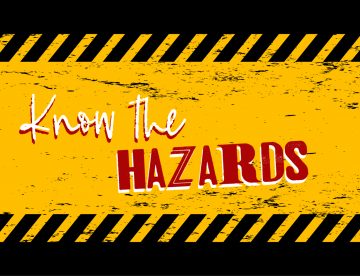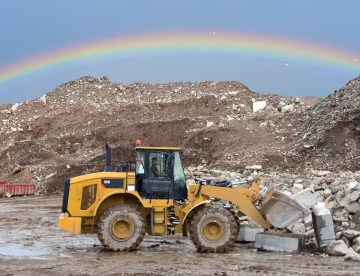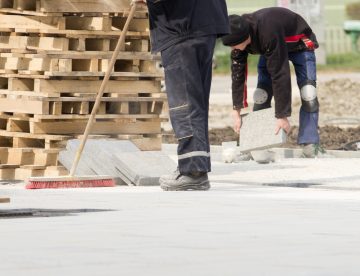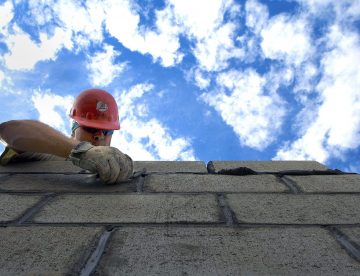
Like most construction companies, there are times when our work involves dealing with and temporarily storing hazardous waste on site. If we were to do this poorly, it would have the potential to cause damage to both the environment and the local community (especially if it was allowed to contaminate surface water or groundwater supplies).
The good news is that we take our responsibilities seriously and follow strict procedures that comply with UK legislation and ensure no such damage comes about. As this is such an important topic, we’ve put together this quick guide to hazardous waste so that people know exactly what they should/ shouldn’t be doing.

The world we live in is constantly changing and the construction industry is certainly no exception to this. While some of the changes construction faces are incredibly challenging (for instance, the materials and labour shortages that have been widely reported in recent years) others can be seen as game-changing opportunities to boost productivity, conquer new markets, improve sustainability and support the wellbeing of the workforce.
As we start another year, still in the grips of the global pandemic along with other serious planetary concerns, we’re taking a look at some of the predicted top trends for construction in 2022.

Globally, in every town and every city, concrete is used to give our buildings shape and strength. But the huge scale of the concrete industry comes at a cost – it’s estimated that around 7% of the world’s carbon dioxide emissions come from the manufacture and use of cement, which is the main component of concrete.
Now, a team from the University of Tokyo have come up with a new kind of concrete that has the potential to reduce emissions from the construction industry! Read on to find out more about this concrete of the future.

Since the coronavirus pandemic, we’ve all become very used to there being an enhanced focus on cleanliness and sanitisation – at home, while out and about and where we work. While this brought additional procedures and policies into play, even before COVID, most workplaces had some rules around maintaining a clean, tidy and well-organised environment. For construction, this is absolutely crucial in order to maintain site safety, prevent accidents or injuries and help to protect the environment.
Here at Sheriff Construction, we’ve made it clear that good housekeeping on site is everyone’s responsibility and there are key actions/ procedures that our site operatives should be undertaking on a continual basis. As a reminder, this week’s blog features the Sheriff guide to keeping things clean.

When the use of flat-roofing in construction hit its first wave of popularity (roughly from the 1950’s to 1970s), most of the properties that were built during that time offered little or no insulation. This approach, known as ‘cold roof’ construction, is now only rarely used as modern day property developments are far more likely to use ‘warm roofing’ methods which help to ensure rooms in the building are warmer in the winter and cooler in the summer, thereby reducing energy usage, bills and environmental impact.
In this week’s blog, we’re putting the spotlight on roofing insulation, its benefits and what’s changed between the older and newer generation systems.

Between July and September this year, the number of vacancies in construction soared to around 43,000 *. That’s double the amount of unfilled jobs the sector saw this time last year and the highest level ever recorded in the 20 years since the data was first collected back in 2001!
While this (alongside other issues like the rising costs of materials) might seem to be cause for concern as we head into the winter, some industry and recruitment experts believe things may be about to change. Find out more, including news of current vacancies at Sheriff, in this week’s blog.

With the news headlines moving slightly away from the coronavirus pandemic into an almost daily dose of woe about the energy market crisis, in today’s blog we’re looking at what effect this might have on construction.
While Sheriff Construction and other building contractors like us do not use very much natural gas in our day-to-day work, the problem is that our suppliers do. Manufacturing the materials we use is often energy intensive and, with the hike in the price of gas, it’s inevitable that those costs will start to pass through the procurement process. One leading economist is warning the industry to be prepared for a ‘phase of rising prices’ in bricks, cement and concrete. Read on for more information.

For construction site workers, every day tends to start with a work gear checklist that looks something like this: Helmet – check, Boots – check, Hi-vis – check, Jetpack – check.
Hold up a minute, what was that last one – a jetpack? OK, so it may not be on the list right now but, with the launch of a new jetpack prototype that’s designed to support maintenance and inspection work at hard-to-reach sites, perhaps the jetpack will become one of those essential items soon! Who’s ready to fly?

For any company to be successful, good leadership is essential. This is true across many different industries and the main issue for construction businesses is achieving this at all the various leadership levels across their organisation. Among other things, we need great leaders in the office to provide direction on the business strategy, principles and procedures; we need great leaders on board at the very beginning of every project to engage with clients and oversee safety, costs and budgeting; and we need great leaders on the ground at each site to manage schedules, monitor progress and motivate the team. With so much riding on it, we’re taking a moment this week to reflect on what good leadership in construction actually looks like.

